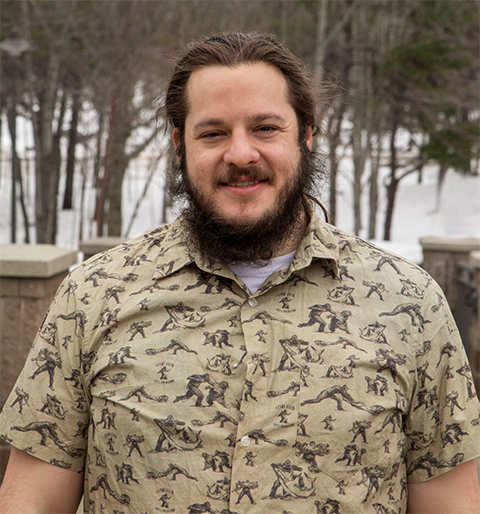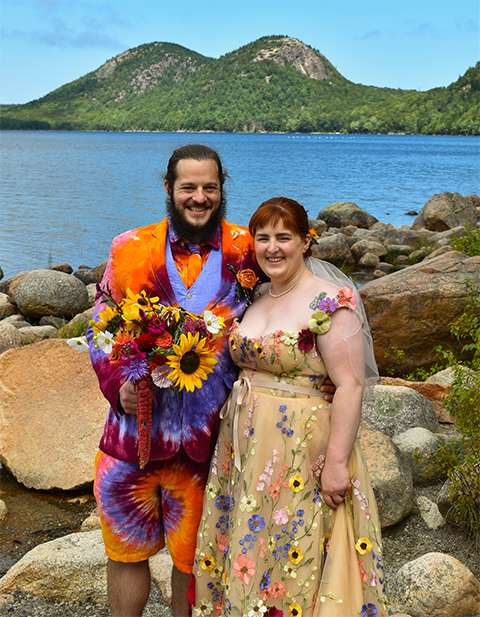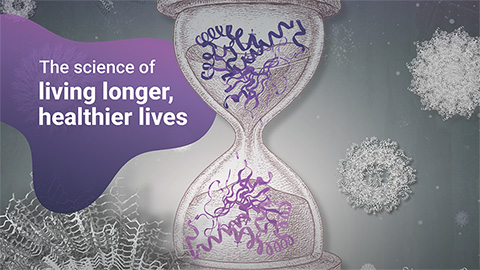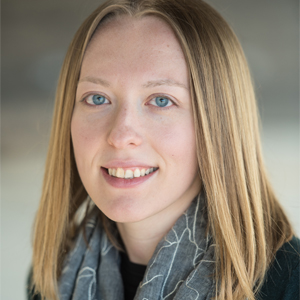A series of happy accidents guided this MOSAIC scholar
Timothy Hines' entry into science wasn’t planned. An undergraduate research placement sparked an interest in studying the brain, a fortuitous hallway meeting steered his choice for grad school, and well-timed conference attendance pointed him to his postdoc.

All this, plus hard work, set Hines up to become one of this year’s American Society for Biochemistry and Molecular Biology Maximizing Opportunities for Scientific and Academic Independent Careers, or MOSAIC, scholars. The MOSAIC award provides Hines with two years of postdoctoral funding, followed by three years of R01-level funding to launch his independent faculty career.
As an undergraduate studying psychology at Appalachian State University, he worked in the laboratory of Mark Zrull where he was introduced to the field of neuroscience.
“I really enjoyed doing the research a lot more than sitting in class,” Hines said. “I spent a lot of time in the lab looking at slides under the microscope and doing brain sectioning.”
Hines was inspired by this experience. After earning a B.A. and B.S. in psychology with a minor in chemistry and German, he decided to pursue a Ph.D.
While visiting graduate schools, he ran into Deanna Smith in a hallway at the University of South Carolina. Smith was on her way to teach a class, but they had a conversation that ended with Smith inviting Hines to rotate in her laboratory. He ultimately decided to attend USC and ended up joining Smith’s lab. Hines studied axonal transport with a specific focus on the role of dynein and how it is regulated through protein-protein interactions. He received the Sloan Minority Ph.D. Fellowship from the Alfred P. Sloan Foundation to support this work.

In 2016, Hines attended a conference at the Jackson Laboratory, or JAX, in Bar Harbor, Maine, focused on axonal degeneration.
“As soon as we were driving onto the island, I was like man, this place is awesome.” Hines said, “Then we were walking about town the next day and I had the thought that I should try to find a postdoc here.”
A few years later, as he was preparing to defend his Ph.D., a mentor sent him a job posting for a postdoc at JAX in the lab of Robert Burgess, whom he’d met during his 2016 visit.
Hines applied and was accepted; he now studies the mechanisms underlying the neurodegeneration that occurs in Charcot-Marie-Tooth disease using both mouse models and induced pluripotent stem cells. He also mentors students from a variety of backgrounds and plans to continue to pay forward all the guidance he’s received.
“I’ve gotten pretty lucky with mentors throughout my career,” Hines said. “One thing I definitely want to be is a good mentor. None of this is being done by myself; it is always a team effort. Being a good mentor involves helping people get to where they want to be. Doing that in a way that is inclusive and promotes diversity is always the goal.”
August 2023 was a monumental month for Hines. He married the love of his life, Ann Wells, a fellow scientist he met at JAX, and the National Institutes of Health notified him of his MOSAIC award, which involves mentoring from both Burgess and another scientist at JAX — Martin Pera.
“When I got the notice of award, I didn’t believe it, and then it slowly sank in,” Hines said.
He is excited about the opportunity to use this award to launch his career. He plans to become a faculty member where he can continue to study neurodegeneration and help mentor the next generation of scientists.
Enjoy reading ASBMB Today?
Become a member to receive the print edition four times a year and the digital edition monthly.
Learn moreGet the latest from ASBMB Today
Enter your email address, and we’ll send you a weekly email with recent articles, interviews and more.
Latest in People
People highlights or most popular articles

From humble beginnings to unlocking lysosomal secrets
Monther Abu–Remaileh will receive the ASBMB’s 2026 Walter A. Shaw Young Investigator Award in Lipid Research at the ASBMB Annual Meeting, March 7-10 in Washington, D.C.

Chemistry meets biology to thwart parasites
Margaret Phillips will receive the Alice and C. C. Wang Award in Molecular Parasitology at the ASBMB Annual Meeting, March 7-10 in Washington, D.C.

ASBMB announces 2026 JBC/Tabor awardees
The seven awardees are first authors of outstanding papers published in 2025 in the Journal of Biological Chemistry.

Decoding how bacteria flip host’s molecular switches
Kim Orth will receive the Earl and Thressa Stadtman Distinguished Scientists Award at the ASBMB Annual Meeting, March 7–10, just outside of Washington, D.C.

Thiam elected to EMBO
He was recognized during the EMBO Members’ Meeting in Heidelberg, Germany, in October.

The timekeepers of proteostasis
Learn about the cover of the winter 2026 ASBMB Today issue, illustrated by ASBMB member Megan Mitchem.

